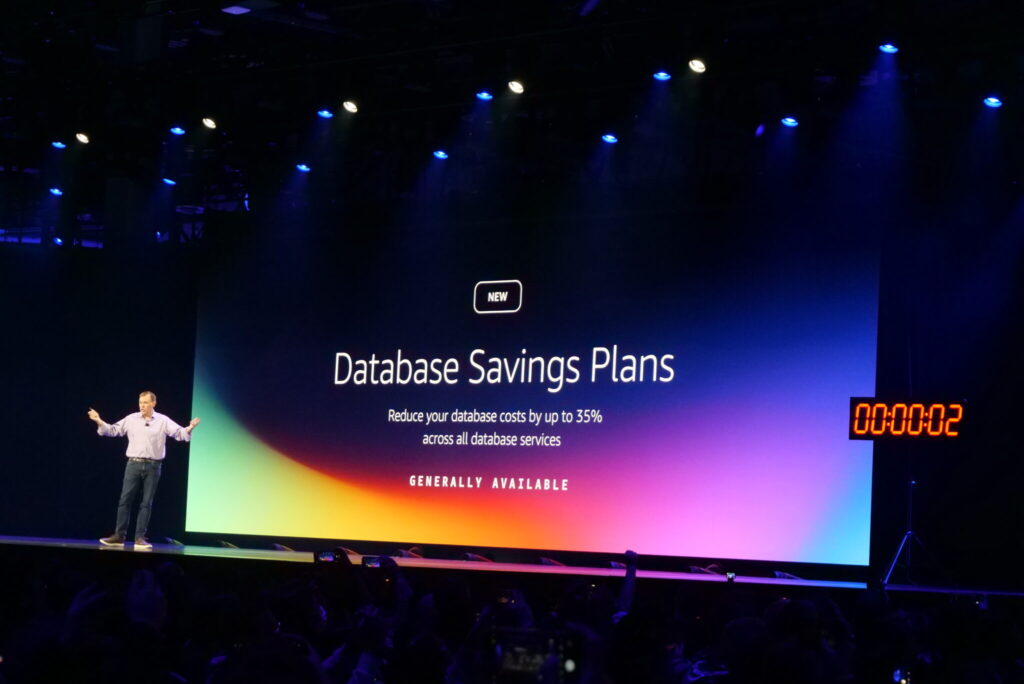
Logicata AI Bot
May 20, 2025
The Logicata AI Bot automatically transcribes our weekly LogiCast AWS News Podcasts and summarises them into informative blog posts using AWS Elemental MediaConvert, Amazon Transcribe and Amazon Bedrock, co-ordinated by AWS Step Functions.
In this week’s LogiCast AWS News podcast, host Karl Robinson and co-host Jon Goodall from Logicata were joined by special guest Jenn Bergstrom, a 6-year AWS Community Builder and AWS Ambassador. The discussion covered a range of topics from AWS services to energy concerns for AI infrastructure.
AWS CloudTrail Network Activity Events for VPC Endpoints
The first topic discussed was the announcement of AWS CloudTrail Network Activity events for VPC Endpoints. Jon expressed surprise that this feature wasn’t already available, stating, “Why is CloudTrail integration not a day one thing?” He emphasized the importance of auditability for cloud services, especially for VPC endpoint creation, which can have significant implications for security and management.
Jenn agreed, adding that the lack of CloudTrail integration for VPC endpoints was a “big problem” given the potential impact on organizational control and monitoring. This announcement highlights the ongoing evolution of AWS services and the importance of comprehensive logging and auditing capabilities.
Enhancing Application Resiliency with Amazon Q Developer
Jenn brought attention to an article about enhancing application resiliency using Amazon Q Developer. As a chaos engineering practitioner, Jenn was particularly interested in this topic. She explained that Amazon Q Developer can help identify single points of failure in architectures and provide recommendations for improvement.
Jenn stated, “This integration with Q for developers, where it can actually tell you where those single points of failure are, provide recommendations on how to improve the architecture… will really help bridge that gap from a more junior architect that doesn’t necessarily see those slightly more hidden single points of failure into a more senior architect level.”
She emphasized the educational aspect of Q, noting that it not only provides recommendations but also explains the reasoning behind them. This feature could be particularly valuable for upskilling junior architects and helping them understand potential vulnerabilities in system designs.
Mapping AWS Security Services to MITRE Frameworks
The podcast then delved into a discussion about mapping AWS security services to MITRE frameworks for threat detection and mitigation. Jon provided an overview of MITRE and its role in classifying vulnerabilities and security threats.
Jenn highlighted the importance of this mapping for communication with security professionals who may not be familiar with specific AWS services. She explained, “Being able to map them and frame them in the MITRE framework is a good way to help drive up their understanding of, well, here’s why we’re spending money on GuardDuty, and here’s why we’re using Security Hub.”
This mapping can serve as a valuable tool for justifying security expenditures and explaining the role of various AWS security services in an organization’s overall security posture.
AWS Pushing UK Chip Plans Amid AI Energy Crunch
The podcast then turned to the topic of AWS’s efforts to push UK chip plans in response to the energy demands of AI workloads. The discussion centered around the use of ARM-based chips, such as AWS Graviton, which offer improved energy efficiency compared to traditional x86 architectures.
Jon expressed surprise at the need to justify the move towards ARM chips, stating, “I don’t know why AWS has to defend moving more into ARM chips… I thought that they use less power, that’s why your phone uses it, was well established at this point.”
Jenn provided context for the discussion, explaining that the rapid adoption of AI technologies has raised questions about sustainability and energy consumption. She noted, “People are asking those questions. Well, how is this sustainable? How are we going to do this? How are we going to manage this?”
The conversation highlighted the growing importance of energy efficiency in data center operations, especially as AI workloads continue to increase in scale and complexity.
UK Needs More Nuclear Power for AI, Says Amazon Boss
The final topic of discussion was based on a BBC article reporting that Amazon’s UK boss, Matt Garman, had called for more nuclear power to support AI infrastructure in the country. This sparked a lively debate about the role of nuclear energy in powering data centers and supporting the growth of AI technologies.
Jon expressed strong support for nuclear power, stating, “It’s not potentially, it is the answer. There’s no potential about it.” He highlighted the benefits of nuclear energy, including its zero-carbon output and safety record compared to other forms of energy production.
Jenn agreed with Goodall’s assessment and brought up the potential of smaller-scale nuclear reactors. She said, “The idea of the microreactors… that would literally be attached to the side of the data center, consistently produce enough energy for that data center, maybe a little bit of overflow, but not much more than that.”
Both Jon and Jenn emphasized the need for reliable, consistent power sources to support the growing energy demands of AI and data center operations. They argued that nuclear power, particularly in the form of smaller, safer reactors, could play a crucial role in meeting these energy needs while maintaining sustainability goals.
Conclusion
This episode of LogiCast AWS News covered a wide range of topics, from new AWS features to broader discussions about energy infrastructure for AI. The conversation highlighted the ongoing challenges and innovations in cloud computing, security, and sustainability as the demand for AI and data center capabilities continues to grow.
As always, the podcast provided valuable insights from industry experts, offering listeners a comprehensive look at the latest developments in the AWS ecosystem and their implications for businesses and technology professionals.
This is an AI generated piece of content, based on the Logicast Podcast Season 4 Episode 20.





